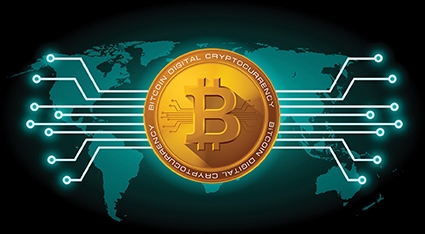The Lovers & Haters of Bitcoin
One distinguishing feature of bitcoin is the cyclicity of the system; it must be extracted, and its programmers get it by receiving a reward for their work. You can even compare it to the way gold is mined: miners digging for gold receive a salary, and programmers making bitcoins receive a commission in the form of the same bitcoins.
As natural resources are limited, including gold, bitcoin is equally as finite. “Production” of bitcoins will cease, when it reaches 21 million units. This naturally fuels its price.
The system is configured so that every 10 minutes there are 12.5 new bitcoins. A bitcoin is extracted by random numbers; as soon as the code is selected, a new coin appears. Production is called “mining,” and programmers are “miners.” It has become a professional business: there are even special computer farms seeing miners use powerful computers with specialized cards, and special processors are being manufactured.
In China, an interdepartmental working group has instructed the provincial authorities to “actively promote” the termination of mining by local companies, The Financial Times reported.
The authorities of the country intend to put an end to mining due to concerns over excess electricity consumption, as well as the financial risks.
Many miners work in remote areas of China, without registering a legal entity. They consume cheap electricity in regions where there are coal or hydroelectric power plants, such as the Xinjiang Uygur Autonomous Region, Inner Mongolia, Sichuan and Yunnan.
China has already closed local stock exchanges of bitcoins, and banned companies from conducting initial placement of the crypto currency. The government of the country also plans to completely block channels for buying and selling crypto currency in China.
South Korea may also prohibit trade in crypto currencies on specialized exchanges and, according to the head of the Pak San Ki department, the relevant document is now being prepared by the Ministry of Justice.
“There are big fears about virtual currencies, and the Justice Ministry, in truth, is preparing a bill to ban trade on the stock exchange,” Reuters cites.
Earlier, the Government of South Korea announced its intention to prohibit the anonymous use of crypto currencies, and to toughen penalties for crimes related to them.
On the other hand, Japan has officially recognized bitcoin. On April 1, the country introduced a new law on currency regulation, according to which bitcoins and other digital currencies received the status of a payment instrument.
In Russia, they went the other way - in March 2016, a special bill was drafted that completely eliminates the use of crypto currency, even making it a criminal liability. But in August 2016, a draft law on the prohibition of bitcoins was adjusted, since the Russian Ministry of Finance opposed the strict ban on crypto currency.
One way or another, professional market participants are beginning to see digital currencies in a new light. Everyone agrees on one thing: crypto currency can change the world given its main feature: an unchanging data register that is stored on every computer on the web and does not belong to any state, belonging instead to the people- miners and communities -which refer to it.
Dimitri Dolaberidze











